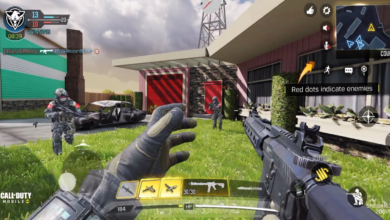
How to Build the Dream Team for Your Dream Game?
Behind every good release, from a blockbuster AAA extravaganza to an innovative indie gem, is a group of carefully assembled talented developers, designers, artists, testers, and producers working towards one shared creative vision. There’s no way around it; building the best in-house team is one of the most intricate and vastly expensive parts of the game development process. How so? If the dream team is out and ready to be deployed, why does outsourcing game development take months of recruiting, onboarding, and infrastructure hassles?
This is where game development outsourcing companies come in — not just as cheap vendors costing partners, but as strategic collaborators with specialized talent in cutting-edge technology expertise and creative powerhouses tailored to your needs. Let’s explore how outsourcing builds the perfect team, how Unity plays a crucial role (especially in VR/AR), and how to deliver top-tier quality — without torching your budget.
What Makes a Game Dev Dream Team?
Before diving into outsourcing, let’s first look at what makes up a dream team in game development. Here’s what you need:
- System designers who think in terms of gameplay and craft mechanics that keep players engaged.
- Engine developers working with Unity or Unreal—handling gameplay logic, physics, and core systems.
- Artists and animators who bring your ideas to life visually—whether it’s stylized, realistic, pixelated, or photorealistic.
- QA testers and technical support engineers who catch bugs, ensure stability and polish every detail. Producers and project managers who hold it all together and keep timelines on track.
Outsourcing: More Than a Staffing Shortcut
Let’s break the myth: outsourcing doesn’t mean sacrificing quality or vision. In the game dev world, outsourcing often extends your creative reach.
Experienced outsourcing companies do a lot more than plug-in extra hands. They engineer teams strategically based on your genre, scale, and scope. That includes:
- Review concept, tech stack, and target platform.
- Map out the talent and skills required.
- Assemble a team rapidly from a vetted, specialized talent pool.
Take N-iX Game & VR Studio, which has over 210 experts on board and 30+ released titles—from stylized indie games to complex VR training simulators. They build dedicated teams that interlace with your pipelines, either starting from the very beginning or scaling up during live operations. What sets their model apart is the full lifecycle flexibility, from earliest concepts and co-development to porting and live-ops support.
Unity as the Backbone of Cross-Industry Experiences
Unity has, on its creators, become one powerful tool that outsourcing teams use to the fullest. It is not just a game but an interactive world that runs on platforms ranging from mobile to consoles, VR headsets, and the web. Its real-time rendering, asset store, flexible scripting, and rapid iteration frameworks make it a favorite for indie through enterprise developers. But the reach of Unity is far from the entertainment itself. Game development outsourcing studios specialized in Unity development often create interactive VR/AR apps for the following industrial scope:
- Healthcare: surgical training, simulators for rehabilitation, immersive diagnostics.
- Education: Augmented textbooks, reconstructions of history, sandboxes for physics.
- Manufacturing & Engineering: VR-based training of equipment; maintenance aided by AR
- Retail & Architecture: Virtual showrooms; interactive previews of home design
N-iX Games, for instance, has a dedicated team that provides Unity-based VR/AR solutions. Their portfolio spans games, immersive training apps, and 3D simulations for clients across industries—showing how Unity, in the right hands, bridges creativity and functionality.
This cross-sector expertise is part of what makes outsourcing so powerful. You’re not hiring generalists—you’re partnering with specialists who’ve seen and built it all.
Budget Optimization: Quality Without Compromise
Now, let’s talk about money. Yes, outsourcing helps save it— perhaps even more importantly, it helps spend it more intelligently. Here’s how outsourcing companies help optimize the budget while maintaining quality:
1. Global Talent at Local Rates
On the other hand, outsourcing to Eastern Europe, Latin America, etc., could provide the same qualified developers or artists for a much lower rate compared to the US or Western Europe. Just take the example of the N-iX Games in Ukraine. They provide very senior people to global publishers in the most cost-efficient manner possible.
2. Elastic Team Scaling
Do you need five developers this month and twelve next? Not an issue. Your development cycle grows or shrinks the resourcing requirement; you won’t ever have too many people, yet you won’t be able to get the job done, either.
3. No Need for Infrastructure Investment
There’s no need to rent office space, set up dev environments, or buy high-end rigs; your outsourcing partner already has all the infrastructure and is up-to-date.
4. Shortened Time-to-Market
Speed is money. Game development outsourcing teams are already operational, have pipeline experience, and do not require months of ramp-up time. This, in turn, gets your game to market faster – and more efficiently.
Why This Approach Works for Indie and AAA Alike
You might think that outsourcing would be something only big studios with super-wide budgets must have. Think again. In real terms, the indie developer often benefits the most. A loose partner ecosystem offers them senior talent and niche expertise they could never afford to have on staff full-time.
For example, in stylized 3D modeling or VR mechanic prototyping, these teams fill cracks where internal resources are weak. Meanwhile, AAA publishers use outsourcing as a way to derisk, accelerate production, and control live-ops. It’s a way of trying to be agile within an industry wherein launch windows are tight, expectations are high, and updates don’t stop.
Conclusion: Find the Right Players, Wherever They Are
Building a game is not an action but a mind-blowing creative risk of solving technical puzzles with colossal ambition. Taking such a journey alone or with the incorrect team can slow you down or even scuttle your vision altogether. However, hiring the right outsourcing partner is not just hiring support; it’s unleashing a scalable global, skill-rich dream team of people as passionate about games, innovation, and impact as you are. The right partner brings talent, fresh perspectives, established workflows, and the ability to adapt quickly to shifting demands. They can turn your boldest ideas into reality faster and with fewer obstacles. Your dream team is out there; you must know where to look.



